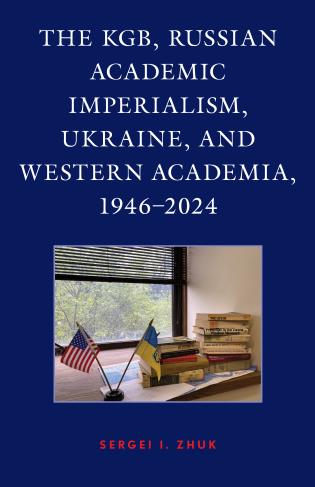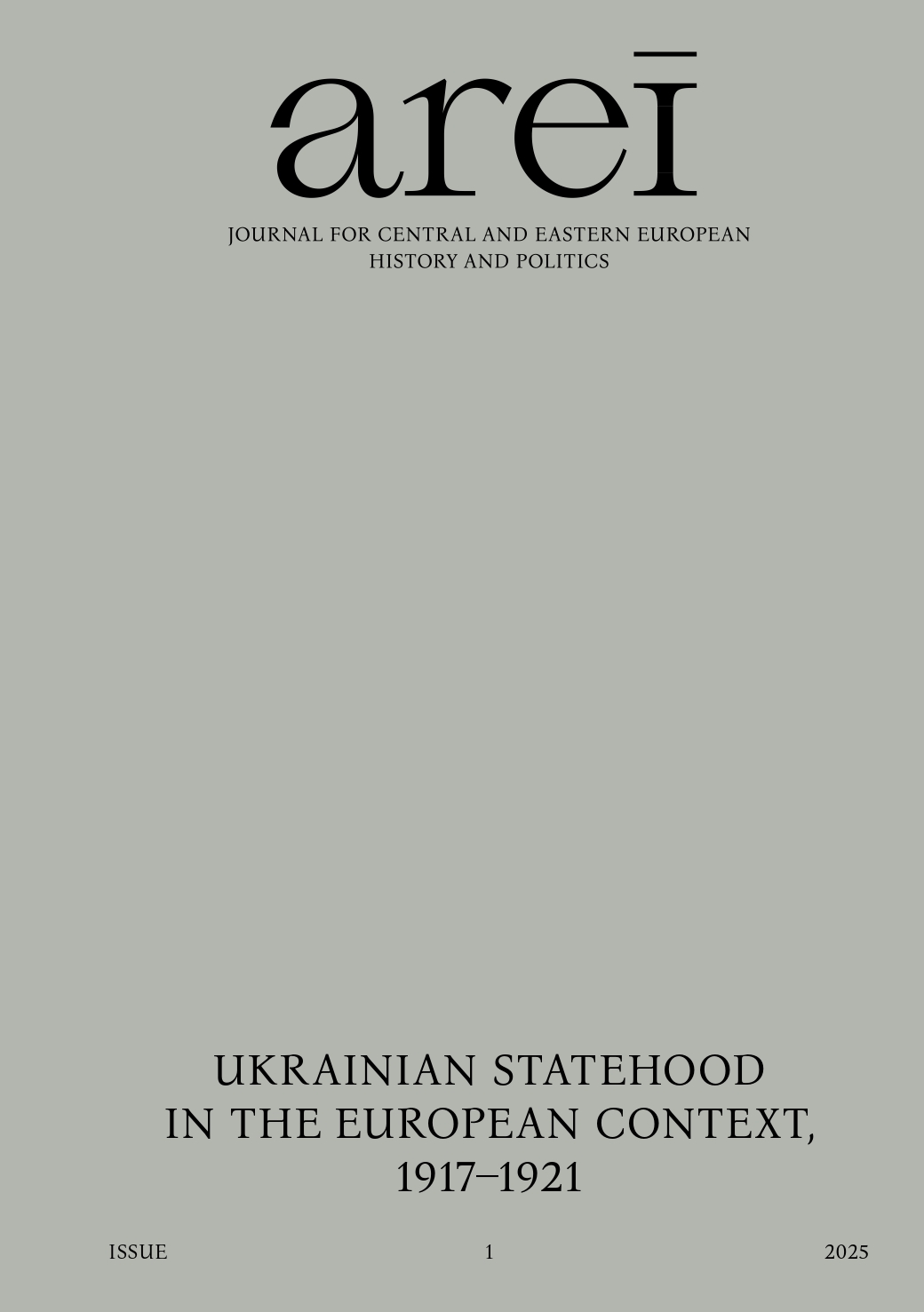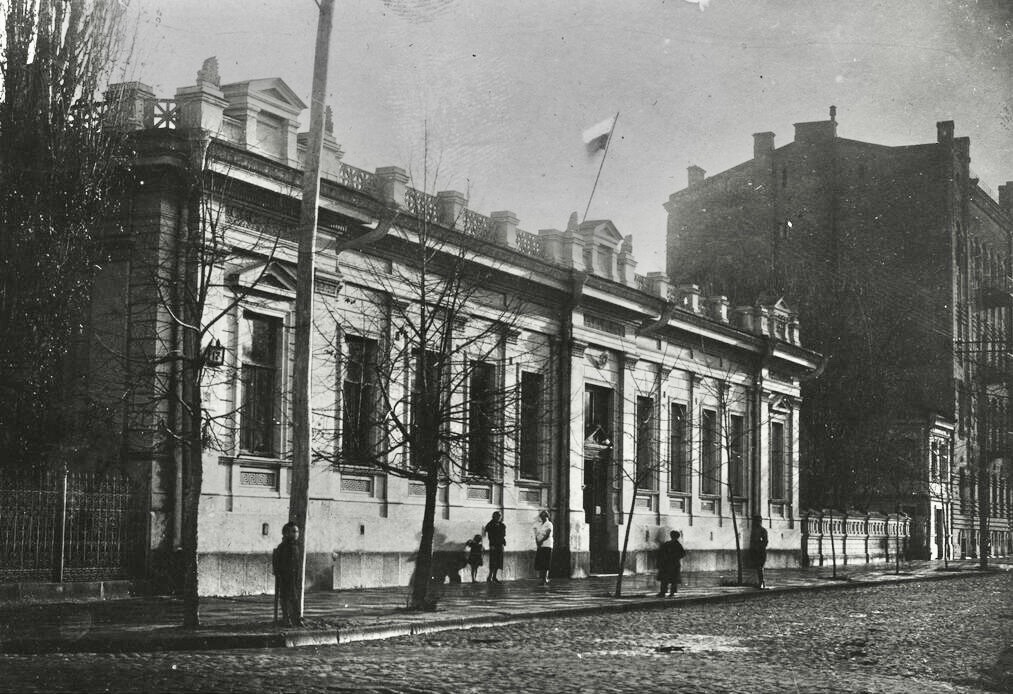Sergei Zhuk, an American scholar of Ukrainian descent, has published a book that exposes how Russian academic imperialism has burrowed its way into Western universities and think tanks. His account sheds light on the involvement of the KGB/FSB in shaping pro-Russian discourse within Western academia and the problem of the perception of Ukraine and other former Soviet republics through the Russian lens. Zhuk’s book not only elucidates the causes of such a state of affairs in Western Soviet/Slavic studies but also examines how the KGB/FSB has exploited and continues to exploit Western academia to promote pro-Russian views. The author names many prominent American researchers of Russian descent who come from families of the Soviet political elite and have close ties to the KGB. Not only have these scholars shaped Western academia’s distorted view of Ukraine, but some of them have not yet condemned Russia’s aggression against Ukraine openly, and some of them continue to collaborate with Putin’s regime. Additionally, the author explores American scholars’ fascination with Russian culture, which leads to the promotion of Russian propaganda and support for Putin’s policies toward Ukraine. The author focuses on Ukraine as a critical factor in Russian academic imperialism and a game changer for Western academia.
The book consists of seven chapters, including an introduction and an epilogue. In the introduction, Zhuk provides modern accounts of Russian influence in American academic institutions and think tanks that were made possible by the enduring intervention of the KGB, which used Soviet Americanists as its primary influencers. The book is based on a large volume of archival sources and numerous interviews with Soviet/Russian Americanists and former KGB officers conducted by the author over the years. While reading the book, one can’t resist the feeling of being immersed in a backward world that could be compared to Lewis Carroll’s Alice in Wonderland, or the Wachowski sisters’ cult movie The Matrix (1999). The latter has rich metaphorical language, and its multiple layers make it a research object in many humanities fields. Not surprisingly, this movie can be seen as relevant to the epistemological problems that Sergei Zhuk’s book raises.
The Matrix’s pivotal point is when Neo, the main protagonist, chooses between a blue and a red pill. At first glance, this implies a choice between fiction and reality. However, careful following of the plot reveals that there is no such choice. Instead, the red pill, which is supposed to be the way out to reality, allows Neo to stay in “Wonderland” and see “how deep the rabbit hole goes”.
Metaphorically, the full-scale Russian invasion of Ukraine on 24 February 2022, should have become the “red pill” for Western academia, finally raising the question about the relevance of Western Slavic/Soviet studies, which perceive not only Ukraine but the whole region of Central and Eastern Europe through the prism of Russia’s “sphere of influence”. The Russian war in Ukraine has revealed inaccurate assessments of political developments in the post-Soviet space and initiated a dialogue about changes in academic programs and approaches to the Easten European region.
The last two conferences of the Association for Slavic, East European, and Eurasian Studies (ASEEES), the leading academic forum for American Slavic scholars, focused on the issue of decolonizing Western Slavic/Soviet studies – specifically, on decentring Russia. However, this radical change hasn’t happened. There are still many scholars in the field of Slavic and Soviet studies who continue to adhere to Russocentric approaches, ignoring or denying Ukrainian agency and applying the imperial paradigm to Central and Eastern Europe. Consequently, it seems that the “red pill” didn’t work. This is precisely the question that Zhuk raises in his book, but he takes the Revolution of Dignity as the point of departure:
The international humanities and social sciences community experienced a real epistemological shock and overall cultural division after the Euromaidan Revolution in 2013–2014. Not only experts in Slavic studies […] but also specialists in American and European studies […] became divided on the issue of accepting the Ukrainian War of Independence against Russian aggression, especially after […] Russia annexed Crimea and invaded Ukraine’s Donbas.
Paradoxically, an influential part of this international community demonstrated obvious “Russo-centrism” (or Russophilia) and outraged Ukrainophobia, trying to justify Putin’s politics in Ukraine and criticizing Ukraine and Ukrainians. To this day, many Western and Russian scholars still do not want to face the “inconvenient truth” about direct Russia’s military aggression and interference in the domestic politics of independent Ukraine long before its full-scale invasion of Ukraine on 24 February 2022. Why does this happen? What are the reasons for the rise of such pro-Russian and anti-Ukrainian sentiments among so many Western and post-Soviet academics? Are these Russophile feelings connected to the significant epistemological and geopolitical changes affecting the humanities? (pp. 125–26).
The author addresses the problem of the discourse of power that has shaped our visions and perceptions of reality. Slavoj Zizek exposed this epistemological trap in his documentary The Pervert’s Guide to Cinema (2006). Zizek points out that when we confine ourselves to the “Matrix”, a metaphor for the imposed discourse of power, there is no actual choice between illusion and reality because fiction has already structured our reality. According to Zizek, if we remove from our reality the symbolic fiction that regulated it, we lose reality itself. At that point, we need a “third pill” that “would enable people to perceive not the reality behind the illusion but the reality in the illusion itself”.[1] This is precisely what Zhuk does in his book, showing how Russian academic imperialism has distorted the perception of Ukraine and the whole area of East European and Eurasian studies, thus making us hostages of this distortion.
The first chapter covers the period from 1946 to 1960, describing how the KGB “mastered” the first American Sovietology centres using Russian emigrants and various types of “leftists” as “agents of influence”. Both the KGB and the CIA couldn’t resist the temptation to use the potential of displaced Soviet persons (DPs) living in Germany. The CIA even funded the Institute for the Study of History and Culture of the USSR in Munich. The author pinpoints that “both the CIA and the KGB officers who monitored the activities of this institute stressed Russian-Ukrainian conflict even between anti-Soviet emigrants who American supervisors employed” (p. 6). Zhuk emphasizes that the KGB was always obsessed with “the threat of Ukrainian nationalism to the integrity of Soviet Ukraine” and was happy to know that American experts were misled and believed that “nationality was a minor issue in the USSR” (p. 7).
The establishment of academic exchange programs in 1958 provided another opportunity for the KGB to infiltrate Western academia with its agents. The author pinpoints that exchange programs led to the establishment of personal ties between American and Soviet scholars that the KGB used for their “active measures”. He also mentions the critical shift that happened in the 1970s:
If, before the 1970s, major participants of Soviet programs of academic exchange with America were predominately scientists and engineers who were connected to the KGB and were engaged mainly in industrial and technological espionage in the US […], during the 1970s, more and more Soviet exchange scholars who travelled to the US, the UK, and Canada represented humanities and social science, especially fields like American Studies”. (p. 12).
Thus, this switch showed that the KGB’s strategy changed in the late Soviet period. It started to “implement” potential influencers in Western academia, while so-called Soviet “cultural diplomacy” evolved to a new level from active measures to formation of academic and, in turn, political discourse.
The second chapter focuses on the creation of research institutes at the USSR Academy of Sciences, under the KGB’s patronage, to promote Soviet discourse in the West. These institutions fostered academic family dynasties. For instance, Ilia Miller, a former officer of the SMERSH group,[2] became the head of the Institute of Slavic Studies and Balkan Studies of the USSR Academy of Science, which was created in 1947. His son, Alexei Miller, is a famous Russian historian who supports Putin’s politics.[3]
However, the author draws attention to the Institute of World Economy and International Relations, which became a place of employment for KGB and GRU retirees, and the Institute for the USA and Canada. Today, graduates of these Soviet institutions hold prominent positions in American universities, shaping academic and political discourse and remaining major promoters of Russian academic imperialism.
In the third chapter, Zhuk details how, through academic exchange programs, Soviet Americanists supported by the KGB established personal networks that effectively promoted pro-Russian positions in American academia. The FSB inherited these networks and continued to use them to advance “Russian academic imperialism, Russian cultural values, and Russian political interests in the American academic community, influencing American foreign policy” (p. 65).
The fourth chapter is devoted to KGB “illegals” and “sleeper cells”. The author emphasizes that this category of Soviet agents survived the collapse of the Soviet Union and continues to operate in the West, but now in Russia’s interests. Special attention is given to the “illegal” couple Andrey Bezrukov and Yelena Vavilova, exposed by the FBI in 2010. Their story became the basis for the popular television series The Americans, unintentionally creating a positive image of Russian spies. The author emphasizes “that such international fascination with this American TV show fits Putin’s propaganda in both Russia and the West, and his cult of the Russian intelligence service” (p. 85). Unfortunately, there is a lack of understanding of the potential danger of Russian weaponization of pop culture for promoting Russian cultural imperialism in the West. According to Bezrukov, the main task of “illegals” is “to understand what your opponent will be thinking about tomorrow, and not what he was thinking about yesterday” (p. 83). The FSB’s task seems much more ambitious: to shape the opponent’s thinking about tomorrow.
Zhuk also emphasizes how Soviet/Russian “sleeper cells” targeted “historically black colleges and universities”, especially in Washington, DC. Particularly, the KGB disseminated disinformation among African American students “portraying all American Ukrainians as “militant anti-Afro-American and Neo-Nazi groups’ that were ‘a real threat to all Afro-Americans and Jews’” in the United States (p. 79–80). The same pattern is used in the countries of the Global South to discredit the Ukrainian fight for independence.
One of Zhuk’s interviewees, a retired Ukrainian KGB officer, mentions that the tradition “of targeting Western educational institutions survived the collapse of the Soviet Union and is still obvious in the domination of the so-called KGB mindset over Russian cultural diplomacy” (p. 71). The most recent example is the arrest of Viacheslav Morozov, a Russian scholar and professor at Tartu University by Estonian security services. It turned out that the GRU, the Main Directorate of the General Staff of the Armed Forces of the Russian Federation, recruited Morozov when he was a student.[4]
The fifth chapter is dedicated to the Ukrainian diaspora, whose activities attracted concern and scrutiny from the KGB. The KGB involved “Soviet Ukrainian scholars in the process of “academic dialogue” with Ukrainian Americans”. The author focuses on historian Arnold Shlepakov and journalist Vitaly Korotych, both of whom collaborated with the KGB and were highly effective and popular among American Ukrainians. Shlepakov started his academic career as a Soviet Americanist in the 1950s, while Korotych became known as a Soviet Ukrainian writer in the 1960s. In 1978, Shlepakov founded and led the Institute of Socio-Economic Problems of Foreign Countries at the Institute of History of the Ukrainian SSR Academy of Science, while the KGB used Korotych within the framework of so-called Soviet cultural diplomacy to promote a positive image of Soviet Ukraine. Both participated in the KGB’s “active measures” aimed at weakening “Ukrainian nationalists”. In Shlepakov’s case, this was a two-way road. His interaction with representatives of the Ukrainian diaspora made him rediscover his Ukrainian national identity and master the Ukrainian language, which “became instrumental for promoting his own career in Soviet academia” (p. 96). At the end of his career, however, Shlepakov adopted a conservative ideological position, criticizing perestroika. In stark contrast, Korotych praised the ideological changes in the Soviet Union, but he was always famous for his “open-minded and democratically oriented” views, which made him popular “not only among the politically left American Ukrainians but also among moderate representatives of the Ukrainian diaspora” in the 1960s (p. 103).
Zhuk also analyses the Ukrainian diaspora’s mistakes in countering Russian influence in the US and Canada after the USSR’s collapse, particularly its inability to identify potential Russian agents. Since the 1990s, the FSB has “mainly involved academic refugees from post-Soviet Ukraine”. Unfortunately, Ukrainian studies centres funded them despite their suspicious connections to “the Soviet political hierarchy” (p. 113).
The gradual narrative of the previous chapters explains the KGB/FSB’s curated institution structures and the methods behind Russian academic imperialism in the West. However, the author addresses the main epistemological challenge in the sixth chapter.
In this chapter, Zhuk shares his own experience, first as a Soviet Americanist and later as a Slavic/Russian studies scholar in Western academia. He recalls his first encounter with the Russian imperialism of his Moscow colleagues: Americanists, who treated him, a native Russian-language speaker, as “another annoying provincial Ukrainian scholar” (p. 126). Such an attitude is rooted in the non-official hierarchy of nationalities in the Soviet Union, where Russians enjoy the privileged position of being “first among equals”, or it might be better to say, “an imperial nation”. In contrast, other nationalities – even Ukrainian and Belarussian Slavs, who are considered “younger brothers” – are treated as second-class people.
According to the author’s observation, the strong feeling of “Soviet nostalgia” came hand in hand with blaming Ukrainians “for betraying East Slavic unity, destroying the Soviet Union, and voting in 1991 for Ukraine’s independence” (p. 127). Apparently, these implicit accusations of Ukrainian “betrayal” revived Ukrainophobia in Russian society.
Recently, Jade McGlynn addressed this in her book Russia’s War (2023). She doesn’t define Ukrainophobia, instead focusing on the empirical manifestation of this approach that is expressed by the following narratives:
– Decentring Ukraine from the war by claiming that Russia fights against the West to liberate Ukrainians from Anglo-Saxons and nationalists;
– Denying Ukraine’s agency;
– Claiming that Ukraine doesn’t exist by appropriating Ukrainian history and culture;
– Vilifying Ukraine by claiming Ukrainians are Nazis.[5]
Sergey Zhuk doesn’t elaborate on the notion of Ukrainophobia, but he shows that the Russian academic community uses all the narratives mentioned above to disgrace the idea of an independent Ukraine. Furthermore, the Russian academic diaspora has contributed to the ostracizing of Ukraine. According to Zhuk, “the ‘silence about Ukraine’ approach is typical of almost all representatives of Russian academic elites who have settled in the West and are now teaching Russian and Soviet history/studies there” (p. 138).
Focusing on the methodological paradigm of “historiographic Soviet nostalgia”, the author emphasizes the significance of the theoretical framework developed by a Soviet émigré from Leningrad, anthropologist Alexei Yurchak. This was the first “theoretical justification for the new paradigmatic shift in the direction of conformist, non-confrontational, non-conflict approaches for American studies of Soviet society during the Cold War” (p. 131). This approach to Soviet post-war society and culture ignored a number of problems, including “the growth of Russian nationalism and anti-Semitism and the exclusive position of Muscovites in the Soviet cultural hierarchy, which are the psychological foundations of Soviet Russian imperialism” (p. 134). Thus, such an approach created an idealized image of the late Soviet period as a “golden age”. This has had dangerous epistemological and methodological consequences, as many American Sovietologists continue to deny Soviet/Russian imperialist policies and, consequently, Ukraine’s agency.
Zhuk concludes that Ukrainophobia in both Western and post-Soviet Russian academia is embedded in a “Russian and Soviet imperialist epistemological complex” that has been reinforced by the feeling of “Soviet nostalgia” among Western and post-Soviet academics. Since the existence of independent Ukraine threatens “the imperialist complex”, they vigorously deny Ukraine’s agency.
However, other works have been created beyond the paradigm of “Soviet nostalgia” that have contributed to excluding the “inconvenient truth” about Soviet national politics. According to Larysa Yakubova and Oleksandr Rubl’ov, Ukrainian scholars who work in the field of Soviet studies, a book that set up a dangerous theoretical framework and misled Western academia was Terry Martin’s The Affirmative Action Empire: Nations and Nationalism in the Soviet Union, 1923–1939 (2001).[6]
Martin transforms the concept of “the USSR is an evil empire” into “the USSR is the world’s first affirmative action empire”, creating a positive image of the Bolsheviks. However, what Martin doesn’t take into account is that Soviet society was deprived of the right to private property, removed from the actual political process, and deprived of free will and the right of self-determination. Ignoring the real socio-economic context, Martin creates a refined sociological scheme that has little to do with historical truth.[7]However, citing Martin’s book (as well as Yurchak’s) has become practically obligatory in recent Soviet studies in the West.
The final chapter addresses the issue of Russian oligarchs close to the Kremlin that fund American Slavic studies centres and promote researchers with connections to the FSB and GRU into prominent positions. This influence allows them to shape political discourse and control academic research grant distribution.
In the epilogue, Zhuk focuses on the legacy of the KGB and the failure of Russia’s “Westernization”. He shows that the Russian elite and society have enjoyed the material comforts and cultural products of the capitalist world while never understanding or accepting the rules of the democratic system. The author emphasizes that the Russian academic diaspora in the West has eagerly joined Putin’s anti-American propaganda campaign and remains a promoter of Russian imperialism, presenting a serious challenge to the democratic world. According to Zhuk, the paradox of this situation is that Putin’s supporters are “Americanized Russian representatives of a former Soviet civilization, who emigrated to avoid being part of Soviet civilization. This leads the author to conclude:
Tragically, today, this Russian diaspora in Western academia is engaged by Putin’s genocidal regime and its intelligence in the Russian war against “imperialist America” and “Americanized Ukraine” in a war which looks like the Nazi regime’s military campaign of 1938, which used the German diaspora, engaging it in promoting pro-Nazi politics in Europe. (p. 197)
References to Hitler’s regime are not new when we are talking about Putin’s Russia. The first mention of Russia’s Weimar syndrome dates back to the beginning of the 2000s, when opinion polls started to show the strong resentment of Russian society regarding the dissolution of the Soviet Union. However, this bitterness became mainstream Russian policy in 2007, the starting point being Putin’s Munich speech. The so-called “conservative turn” in Russia has found much support in Russian society, even among those who consider themselves liberal and democratic. Putin’s Russia Weimer syndrome has taken the form of double Soviet and Russian patriotism, while neo-Stalinism has become a symbol of a virtual return to the USSR. The instrumentalization of nostalgia for imperial greatness has become a unifying Russian national idea.[8] Thus, Russian academic imperialism is only one dimension of Weimer syndrome, albeit the most dangerous one.
The author does not explain why Putin’s propaganda has found a broadly positive response among the Russian diaspora in Western academia. The close ties with the KGB/FSB are mentioned in Zhuk’s research, but they are not enough to explain Russian scholars’ loyalty to Russian imperial discourse in Western academia. However, explaining this phenomenon is not the aim of Zhuk’s book. The author implicitly refers to this issue by mentioning that the Russian diaspora in Western academia represents a former Soviet civilization. This is a key factor in explaining this phenomenon.
According to Levada Center analysts, Soviet civilization shaped Homo Soveticus, a person who is prone to imperial syndrome and has survived the dissolution of the Soviet Union. The jealous and chronically anxious nature of Homo Soveticusprovokes a “mixture of frustration, aggression, and asthenia” as a reaction to any state of uncertainty or complication, thus tending to cause him to shift the blame for his condition to the “other”.[9]
Maybe part of the problem is that “very Americanized” Russian representatives in Western academia are very Soviet people beneath the surface. That’s why they are engaged with Putin’s genocidal regime in the war against “Americanized Ukraine”, producing non-conflicting “Soviet nostalgia” discourses.
Sergei Zhuk’s book elucidates the mechanisms of how Russian academic imperialism is supported and promoted by the KGB/FSB, which has lulled Western society. Zhuk’s research serves as a “third pill”, revealing not only “how deep the rabbit hole goes”, but also showing the realit
[1] Red Psicoanalítica de Atención, ‘The pervert’s guide to cinema – Matrix’, online video recording, YouTube, 10 February 2019 <https://www.youtube.com/watch?v=LAfoiAkJ3Zo > [accessed on 11 November 2024].
[2] SMERSH is of People’s Commisariat of Defense of the Soviet Union department that fought against German spies and Nazi collaborators during the Second World War. The name itself is derived from Russian words: smertʹ špionam – death to the spies.
[3] Alexei Miller (born 1959) is a Russian historian, Doctor of History, leading researcher at the Institute of Scientific Information on Social Sciences (INION) of the Russian Academy of Sciences, and a specialist in the history of Eastern Europe and the national question in the twentieth century. Miller is widely known for his research on the national policy of the Russian Empire and the Soviet Union, as well as Russian historical politics.
[4] Alexander Martin, ‘Estonia sentences Russian professor to six years in prison for espionage’, The Record, 18 June 2024 <https://therecord.media/estonia-sentences-russian-professor-espionage> [accessed on 11 November 2024].
[5] Jade McGlynn, Russia’s War (Cambridge: Polity Press, 2023), pp. 137–58.
[6] Terry Martin, The Affirmative Action Empire: Nations and Nationalism in the Soviet Union, 1923–1939 (Cornell University Press, 2001).
[7] Oleksandr Rublʹov and Larysa Yakubova, ‘Pro “Іmperiju pozytyvnoji diji” Teri Martyna’, Historians.in.ua,
1 August 2013 <http://www.historians.in.ua/index.php/en/dyskusiya/796-oleksandr-rublov-larysa-yakubovapro-imperiiu-> [accessed on 11 November 2024].
[8] Yana Prymachenko, ‘Іstoryčna polityka RF ta jiji vlyv na terytoriji pivdenno-schidnoji Ukrajiny ta AR Krym v konteksti «russkoho myra»’, Rehionalʹna istorija Ukrajiny: Zbirnyk naukovych statej, 11 (2017), 101–32.
[9] ‘Slabostʹ graždanskogo obščestva v postsovetskoj Rossii i problema “sovetskogo čeloveka”’, in Postsovetskij čelovek i graždanskoe obščestvo, ed. by Lev Gudkov, Boris Dubin, and Natalija Zorkaja (Moskva: Moskovskaja škola političeskich issledovanij, 2008) p. 8.







